If you're an avid viewer of Jeopardy! or Wheel of Fortune, you've likely noticed the frequent ads for brain health supplements like Prevagen. These commercials, replete with glowing testimonials and compelling visuals, promise improved memory and cognitive function, particularly targeting older adults who may be concerned about memory loss. The marketing is persuasive, with claims that seem almost too good to pass up. But, as with many things that sound too good to be true, it’s crucial to dig deeper.
In this post, we'll take a closer look at Prevagen, explore the criticisms and legal challenges it has faced, and introduce some supplements that are backed by stronger scientific evidence for supporting cognitive health. Finally, we’ll stress the importance of consulting with a healthcare provider before starting any new supplement regimen.
The Prevagen Phenomenon
Prevagen, which contains the active ingredient apoaequorin—a protein originally derived from jellyfish—is marketed as a solution to memory loss and cognitive decline. The ads you see on television are carefully crafted to appeal to an older demographic, suggesting that this supplement can help keep your mind sharp as you age. However, the scientific support for these claims is lacking.
Despite its popularity, Prevagen has faced significant scrutiny. The primary issue is the lack of solid, peer-reviewed evidence that apoaequorin can cross the blood-brain barrier or that it has any significant effect on memory or cognition. The studies provided by the manufacturer are often small, poorly designed, or show results that are not statistically significant.
In 2017, the Federal Trade Commission (FTC) and the New York Attorney General's Office filed a lawsuit against the makers of Prevagen, alleging that their marketing claims were false and misleading. They argued that the company’s promotional materials were not backed by credible scientific evidence, yet they continue to market the product aggressively to vulnerable populations.
Why Evidence Matters
Supplements, especially those claiming to enhance cognitive function, should be approached with caution. The human brain is complex, and maintaining cognitive health involves a range of factors, including diet, exercise, sleep, and mental activity. While the idea of taking a pill to improve memory is appealing, it’s essential to rely on products that are supported by robust scientific research.
Consulting with your doctor before starting any supplement is crucial for several reasons:
Safety: Some supplements can interact with medications or exacerbate underlying health conditions.
Efficacy: Your doctor can help you determine whether a supplement is likely to be beneficial based on your individual health profile.
Personalized Advice: Cognitive health strategies should be tailored to the individual. What works for one person may not work for another.
Supplements with Stronger Scientific Support
Unlike Prevagen, there are other supplements with more robust evidence supporting their use in cognitive health. Here are three that stand out:
1. Omega-3 Fatty Acids (DHA and EPA)
Omega-3 fatty acids, particularly DHA and EPA, are well-known for their role in brain health. These essential fats are critical for maintaining the structure and function of brain cells. Numerous studies have shown that omega-3 supplementation can support cognitive function, slow cognitive decline, and may even help prevent conditions like Alzheimer's disease (Examine.com).
Omega-3s are found naturally in fatty fish such as salmon, mackerel, and sardines, but they can also be taken as supplements, especially for those who may not get enough through their diet.
2. Phosphatidylserine
Phosphatidylserine is a phospholipid that is a major component of cell membranes, particularly in the brain. It plays a crucial role in maintaining cellular function and has been shown to improve memory and cognitive performance, particularly in older adults experiencing cognitive decline (Examine.com).
Phosphatidylserine supplements have been studied for their potential to enhance memory, attention, and the ability to manage stress, making them a popular choice for supporting brain health.
3. Vitamin D
Vitamin D is essential for overall health, and low levels have been associated with cognitive decline and an increased risk of dementia. Research indicates that maintaining adequate vitamin D levels is important for brain health, particularly in older adults (Examine.com).
Supplementing with vitamin D can be particularly important in individuals who have low exposure to sunlight or have difficulty absorbing vitamin D from their diet.
Conclusion: Make Informed Choices for Brain Health
As tempting as it may be to believe in quick fixes, especially when they are marketed so convincingly, it's vital to base your health decisions on evidence rather than advertising. While Prevagen's flashy marketing might catch your eye, the science behind it is questionable at best. On the other hand, supplements like Omega-3 fatty acids, Phosphatidylserine, and Vitamin D have stronger evidence supporting their role in maintaining cognitive health.
Always discuss with your healthcare provider before starting any new supplement, as they can provide personalized advice and help you navigate the sometimes overwhelming world of dietary supplements. By making informed choices and focusing on scientifically supported options, you can better support your cognitive health now and in the future




